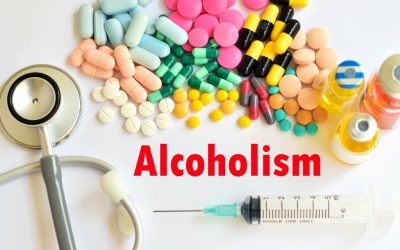Tapering Off Alcohol: Is It Safe and Should You Do It?
If you can get through a day with no physical withdrawal symptoms, you probably won’t need to taper. If you get moderate tremors or start hallucinating six hours after your last https://depressiontreatmentsolutions.com/7-things-look-choosing-inpatient-recovery-facility-arizona/ drink, you probably need to taper. Everyone is different, so it’s ultimately up to you to decide if you want to taper or not.

How Alcohol Addiction Is Like an Abusive Relationship

If you do it too fast, you increase your chance of severe withdrawal. These schedules are largely based on my experience of self tapering, what I’ve read on r/dryalcoholics and HAMS Harm Reduction Guide to Tapering. You may need to do a slower taper than someone else who was drinking the same amount as you.
Check in with your body for signs of detox
If you’ve been unable to quit on your own, you should consider attending an alcohol rehab center. Alcoholism treatment allows you to detox in a safe environment. It teaches you healthy ways to cope with http://www.freepatent.ru/patents/2523806 stress and techniques for overcoming the underlying causes of alcohol addiction. It can help you reach goals and can minimize some of the unpleasant and severe symptoms of alcohol withdrawal. Deciding to taper off alcohol is a slower process that requires planning, but it can decrease both the chase of experiencing severe withdrawal symptoms and relapse. Alcohol addiction can be difficult and sometimes dangerous to handle on your own.
Why Alcohol Withdrawal Occurs
If you repeatedly cannot cut back on your drinking or otherwise cannot get lower than a certain point in the taper, this might not be the right method for you. If you mess up once or twice and drink more than you intended to, don’t be too discouraged. You can continue your taper the next day from whatever point you think is appropriate.


It’s important to note that stopping drinking can be dangerous and even life-threatening. It’s vital to speak with a medical professional before you begin weaning off alcohol to ensure you have a plan to do so safely. Little data is available about the safety and effectiveness of alcohol tapers. In contrast, robust evidence supports quitting alcohol while under medical supervision. If you struggle with drinking, the safest way to quit is under a doctor’s care.
- Tapering off alcohol involves gradually reducing the amount of alcohol you drink.
- This can trigger alcohol withdrawal symptoms, which can be dangerous in some cases.
- In medical detox, you receive around-the-clock care from doctors and nurses to help prevent and treat alcohol withdrawal symptoms and their complications.
- Always consult a medical professional before starting any tapering schedule.
- In particular, she’s committed to helping decrease stigma around mental health issues.
How to Know When It’s Time to Cut Back
When that numbing sensation disappears entirely, the brain is left dangerously overstimulated. Insomnia, anxiety and paranoia — the opposite effects of alcohol — are the expected results. Thus, a user will likely seek out alcohol again to rid themselves of the uncomfortable withdrawal symptoms.
If you are detoxing at home, anything beyond mild symptoms should trigger you to seek medical help. Delirium tremens (DTs) is a serious condition that some people struggling with https://inazifnani.com/baby-formula-recall-lawyer/ alcohol withdrawal go through. It is characterized by severe nausea, seizures and hallucinations.
